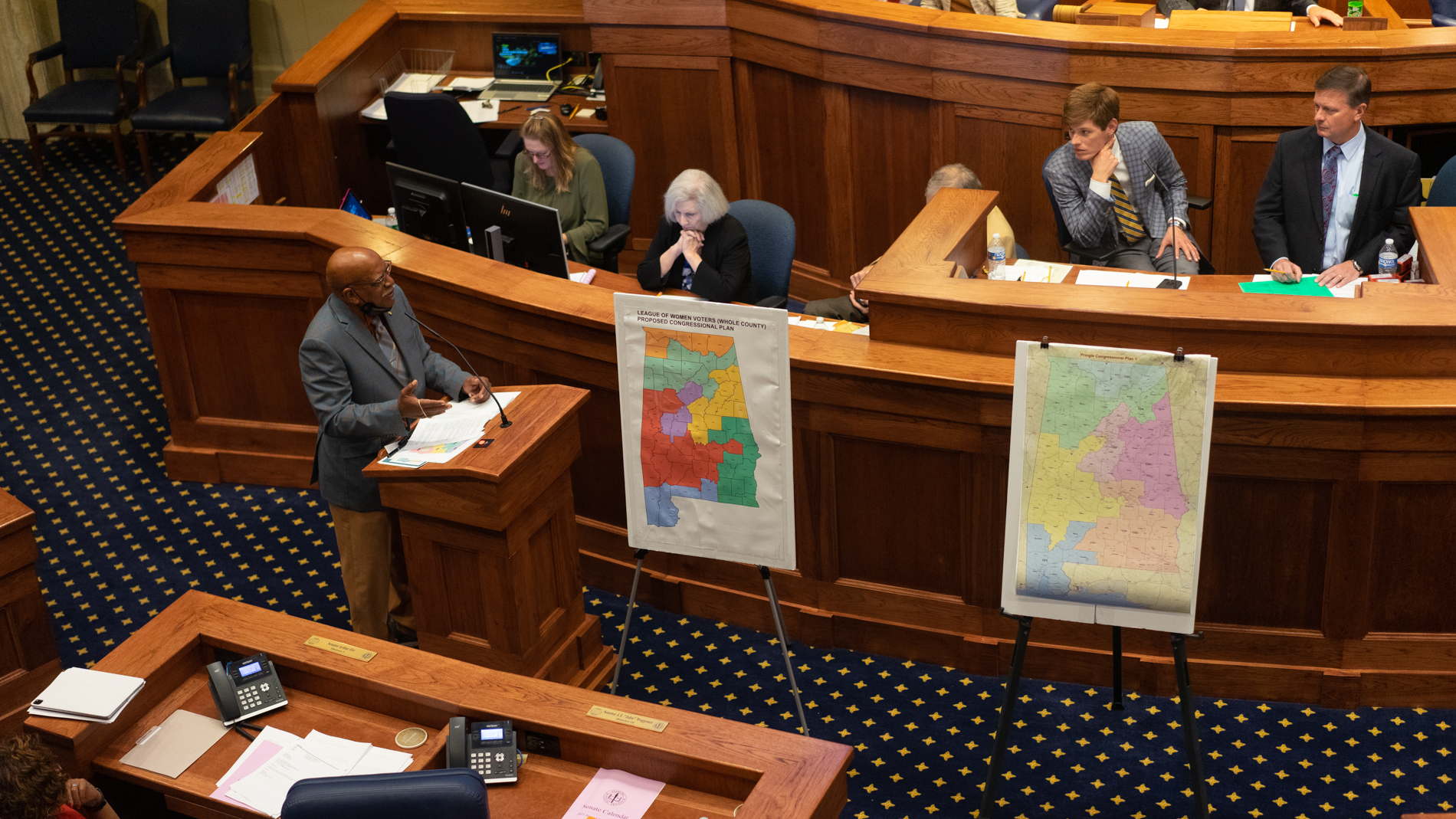|
Getting your Trinity Audio player ready...
|
Kamala Harris didn’t really lose to Donald Trump in the 2024 election. The election rules were unfair, and had Democrats been able to write better rules that allowed more people who liked their policies to vote, Harris would have been the winner. Democrats need to change those rules before the next election to get more votes.
That’s insanity, right?
Well, hold onto that outrage for a moment.
Last week, following the election of Shomari Figures to be Alabama’s newest congressman, representing the state’s 2nd congressional district, several Alabama GOP officials, including a previous party chairwoman, went on record saying basically all that I did in the opening paragraph.
Figures won because the district lines were drawn “oddly.” The Republican candidate, Caroleene Dobson, didn’t really lose, she was just the victim of a bad map. And to fix this problem, Republicans need to redraw those lines, get those darned progressive voters, who care about their own health care and public schools, out of that district and get more Republican sycophants in there.
OK, I paraphrased a bit there, but that’s basically what they said. And they said it all out loud, as though it was all completely normal.
Like this from former chairwoman Terry Lathan: I don’t know that it (the election) went wrong as much as the lines, the way the courts drew the lines. I don’t think we’re finished with this. But you have to accept the outcome of the race. It was very oddly drawn lines for CD2.”
I’ll agree with Lathan on one point – the district was very oddly drawn. At least for Alabama.
Because the lines are fair.
A federal court, following a shocking ruling from the most conservative U.S. Supreme Court in three generations, assigned a special master to draw the new district lines for Alabama’s CD2. That came about because Alabama Republican lawmakers drew up unconstitutional districts, which discriminated against Black voters. And then those lawmakers, even after the Supreme Court ruling, refused to fix them, choosing instead to cement their racism in the history books.
The federal court didn’t give Black voters an advantage when it selected the new map for the district. Instead, 48.7 percent of the voting age residents in the district were Black, giving Black voters a reasonable opportunity to form a coalition with like-minded white voters to elect a candidate that best represented them.
See? Odd.
The insanity of a grown person finding such an arrangement “odd” is truly off the charts if you step back and consider for a moment just how all of this is supposed to work.
Let’s start with this: Voters are supposed to choose their representatives, not vice-versa.
ALGOP and Dobson (or any other candidate) had every opportunity to consider what the residents of CD2 valued and wanted from a representative and then mold their platform to better align with voters. That’s how representative government works.
Instead, for some reason, a large swath of people seem to believe it perfectly natural in today’s political world for a party to field a group cookie-cutter, lockstep candidates and then mold districts to fit the party’s agenda.
That’s not OK. Not for either party.
And it’s utterly mindboggling that a person could say such out loud and that other people – voters, for god’s sake – would agree with it. What are y’all doing?
Our legislatures and congresspeople and senators shouldn’t be re-elected at a better-than-90 percent clip. No job this important should be that safe.
Because competitive races force important issues and critical changes to the forefront. Competitive races are what get the marginalized heard and they’re what shine a light on the plight of the downtrodden and forgotten.
Consider what happened in the CD2 race. Both Dobson and Figures were forced to venture into places that might have been hostile to their brands of politics. But they went and listened, and from those visits they each took away important lessons and each shifted on important topics.
The same thing happened in the presidential election, where both Trump and Harris were thrust into uncomfortable settings and heard from people who held views different from their political rhetoric. And again, both candidates shifted on a handful of important issues.
I’m not talking about abandoning long held beliefs or tossing aside fundamental ideals. I’m talking about listening to voters – the real people politicians are supposed to serve – and crafting their policies to better serve those people.
Those things don’t happen with gerrymandered districts, no matter who they’re gerrymandered for. And it’s long past time we stopped allowing the insanity of politicians drawing up their own district lines.
These things should be done by committees of uninvolved experts and computers, which are all working from a set of predetermined guidelines and rules to draw district lines that favor voters instead of parties. It can be done, and it is being done in other states.
Until it’s done here, nothing is going to change for the better.





















































